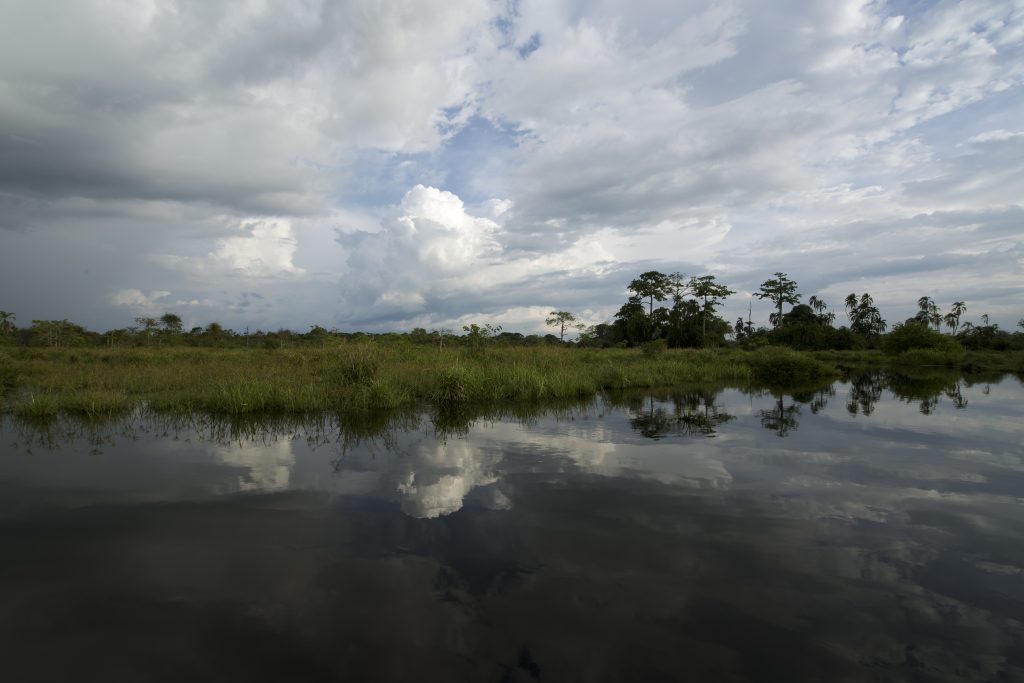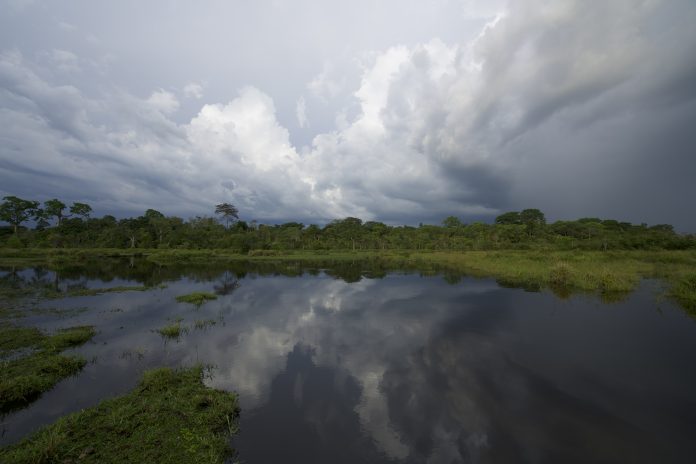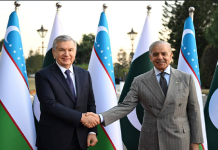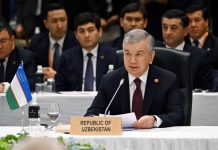By Susan Novela
(Cape Town/South Africa)
Africa contains vast aquatic resources, including extensive coastlines, inland lakes, and rivers. These waters host a rich diversity of marine and freshwater life, serving as vital sources of sustenance, livelihoods, and economic growth for millions across the continent. However, Africa’s marine and freshwater ecosystems face escalating threats from:
• overfishing,
• pollution, and
• climate change.
These endanger biodiversity and the communities that depend on these resources. To safeguard this natural wealth, countries across the continent are intensifying efforts to protect marine ecosystems and promote sustainable fishing practices.
In this article we explore a sample of what some countries – including:
• South Africa,
• Democratic Republic of Congo,
• Uganda, and
• Republic of Congo (Brazzaville)
are doing in this important regard. Some of the initiatives are also regional in nature. We start below with South Africa, a very important player on the continent.
South Africa: Leading Marine Conservation Efforts
South Africa’s 3,000-kilometre coastline along two oceans, has forced it to become a continental leader in marine conservation. Its marine ecosystems host iconic species such as great white sharks, African penguins, and humpback whales. These draw in tourists and researchers alike. To protect these ecosystems, South Africa has established 41 Marine Protected Areas (MPAs), covering over 14% of its Exclusive Economic Zone (EEZ).
One such MPAs is the iSimangaliso Wetland Park, a UNESCO World Heritage Site. It is a sanctuary for coral reefs, mangroves, and seagrass beds, providing crucial habitats for marine life. By regulating fishing, mining, and tourism within these areas, South Africa ensures the sustainable use of marine resources while preserving biodiversity.
South Africa has also implemented policies such as the Total Allowable Catch (TAC) system, to curb overfishing. This sets annual limits for fish stocks such as hake and sardines. Community-based initiatives, such as the Small-Scale Fisheries Policy, empower coastal communities to manage fisheries sustainably while improving their livelihoods. These efforts mirror what Uganda is also trying to do as per below.
Uganda: Protecting Inland Water Resources
Despite being landlocked, Uganda owns vast freshwater systems. These include Lake Victoria – the largest freshwater lake in Africa; these play an important role in its economy and food security. However, unsustainable fishing practices, such as the use of illegal fishing gear and overfishing, have depleted fish stocks, particularly Nile perch and tilapia.
In response, Uganda has intensified efforts to regulate fishing activities on Lake Victoria. The government has launched initiatives to combat illegal, unreported, and unregulated (IUU) fishing. These include patrols and community sensitization campaigns.These efforts aim at restoring fish stocks while ensuring that local fishermen can sustain their livelihoods.
Uganda is also promoting aquaculture as an alternative to traditional fishing. The rise of fish farming, supported by government incentives and private sector investment, has provided new opportunities for rural communities. In the process, it is reducing pressure on natural fish stocks. Also located in the equatorial region and facing similar challenges is the Republic of Congo, which has embarked on a similar mission.

Republic of Congo (Brazzaville): Preserving Coastal and Marine Ecosystems
The Republic of Congo, with its Atlantic coastline, is home to critical marine habitats; they include mangroves and seagrass meadows. These serve as nurseries for fish and protect shorelines from erosion. However, industrial activities, pollution, and illegal fishing threaten these ecosystems.
The Congolese government has taken significant steps to address these challenges. It has established MPAs, such as the Conkouati-Douli National Park, which combines terrestrial and marine conservation. This park protects endangered species such as sea turtles and manatees, while supporting sustainable fishing practices for local communities.
Additionally, Congo participates in regional initiatives such as the Central African Fisheries Organization (COREP). This promotes collaboration on marine resource management and combating illegal fishing in the Gulf of Guinea.
Democratic Republic of Congo (DRC): Managing Inland Fisheries
Similarly, the DRC, with its extensive network of rivers and lakes, including the Congo River, boasts some of the most biodiverse aquatic ecosystems in the world. These waters are crucial for food security and livelihoods, particularly in rural areas.
However, unsustainable practices, such as overfishing and habitat destruction, threaten the health of these ecosystems. The DRC is addressing these challenges through regulation and protection of critical habitats. For example, the government has established fish breeding zones in key lakes and rivers, where fishing is restricted to allow stocks to replenish.
The DRC is also promoting community-based fisheries management, empowering local communities to take a leading role in conservation. By combining traditional knowledge with modern techniques, these initiatives are fostering sustainable practices that benefit both people and the environment.
The Role of Regional Collaboration
Africa’s water bodies are interconnected, transcending national boundaries and thus require regional collaboration for effective management. Initiatives such as the African Union’s Blue Economy Strategy and the Fisheries Committee for the West Central Gulf of Guinea (FCWC) emphasize the importance of sustainable practices and regional cooperation. These frameworks aim to harmonize policies, combat illegal fishing, and foster knowledge exchange among member states.
There are some common threads among the various countries in their approaches. First, they are all interested in striking a balance between retaining livelihoods while preserving their natural resource heritages. The key instruments they are all deploying include formal policies, enforcement, education, community participation and creation of alternatives to harvesting. Alternatives include aquaculture. Because of the interconnectedness of their resources, they also find it useful to engage through regional initiatives as per below. The key to success is to understand that conservation sits within a broader sustainability and climate change agenda that is everyone’s problem.
Addressing Climate Change and Pollution
Climate change exacerbates Africa’s aquatic ecosystem challenge through:
• Rising sea temperatures,
• ocean acidification, and
• changing rainfall patterns.
The consequence is the disruption of marine and freshwater ecosystems. In turn, this impacts fish stocks and biodiversity. Coastal erosion and sea-level rise also threaten communities and infrastructure.
Pollution, including plastic waste, industrial runoff, and oil spills, compound these threats. Countries such as South Africa and the Republic of Congo (Brazzaville) are investing in waste management systems, environmental education, and clean-up campaigns to mitigate pollution.
A Sustainable Path Forward
The health of Africa’s marine and freshwater ecosystems is integral to the continent’s environmental, economic, and social well-being. By prioritizing conservation, promoting sustainable fishing practices, and fostering regional collaboration, African nations are paving the way for a blue economy that balances ecological protection with economic growth.
South Africa, Uganda, the Republic of Congo, and the DRC exemplify the diverse strategies being implemented to achieve this vision. Through continued investment in conservation, innovative policies, and community empowerment, Africa can ensure that life below water thrives for generations to come.
To recap, South Africa has established 41 Marine Protected Areas (MPAs), covering over 14% of its Exclusive Economic Zone (EEZ), among other efforts. DRC is targeting overfishing as well as restocking through fish breeding.
Congo Brazzaville is focused on conservation of mangroves and seagrass meadows that serve as nurseries for fish and that are threatened by industrial activities, pollution, and illegal fishing. Uganda has intensified regulation and is promoting Aquaculture as an alternative to fishing. Since Africa’s water bodies are interconnected, regional collaboration is needed and is being pursued for effective management.
Initiatives such as the African Union’s Blue Economy Strategy and the Fisheries Committee for the West Central Gulf of Guinea (FCWC) emphasize the importance of sustainable practices and regional cooperation. These frameworks aim to harmonize policies, combat IUU fishing, and foster knowledge exchange among member states.
This article is produced to you by London Post, in collaboration with INPS Japan and Soka Gakkai International, in consultative status with UN ECOSOC.






